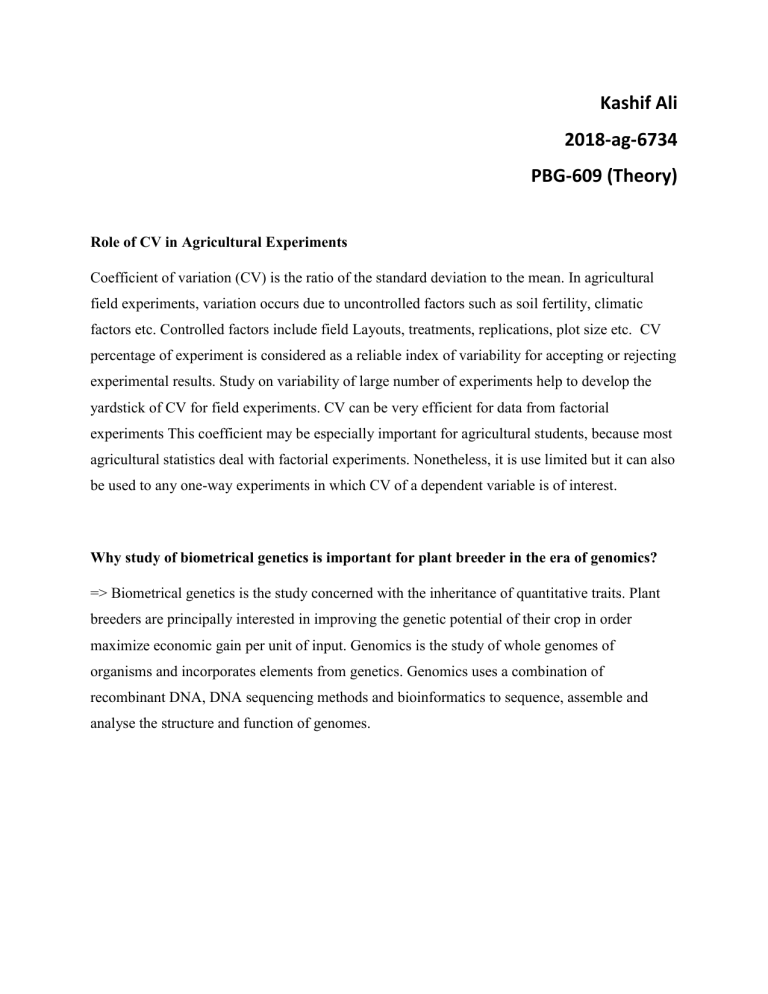
Kashif Ali 2018-ag-6734 PBG-609 (Theory) Role of CV in Agricultural Experiments Coefficient of variation (CV) is the ratio of the standard deviation to the mean. In agricultural field experiments, variation occurs due to uncontrolled factors such as soil fertility, climatic factors etc. Controlled factors include field Layouts, treatments, replications, plot size etc. CV percentage of experiment is considered as a reliable index of variability for accepting or rejecting experimental results. Study on variability of large number of experiments help to develop the yardstick of CV for field experiments. CV can be very efficient for data from factorial experiments This coefficient may be especially important for agricultural students, because most agricultural statistics deal with factorial experiments. Nonetheless, it is use limited but it can also be used to any one-way experiments in which CV of a dependent variable is of interest. Why study of biometrical genetics is important for plant breeder in the era of genomics? => Biometrical genetics is the study concerned with the inheritance of quantitative traits. Plant breeders are principally interested in improving the genetic potential of their crop in order maximize economic gain per unit of input. Genomics is the study of whole genomes of organisms and incorporates elements from genetics. Genomics uses a combination of recombinant DNA, DNA sequencing methods and bioinformatics to sequence, assemble and analyse the structure and function of genomes.
